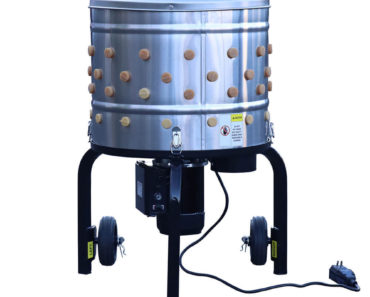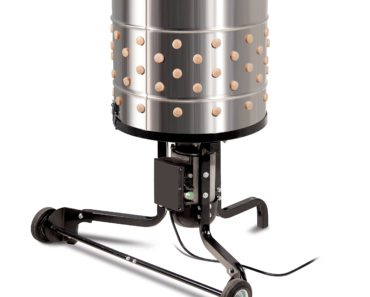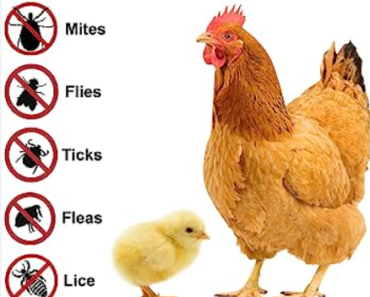Contents
- 1 Discover the Benefits of Organic Soy-Free Chicken: The Perfect Protein Choice for Health-Conscious Food Enthusiasts
- 2 What is organic soy free chicken?
- 3 Benefits of choosing organic soy free chicken
- 4 How to incorporate organic soy free chicken into your diet
- 5 FAQ
- 5.1 Is organic, soy-free chicken considered a healthier option compared to conventionally raised chicken?
- 5.2 What are the benefits of consuming organic, soy-free chicken in terms of taste and nutrition?
- 5.3 How does organic, soy-free chicken farming impact the environment and animal welfare?
- 5.4 Related Posts

Introducing our latest blog post on organic, soy-free chicken! Discover the benefits of choosing genuine, high-quality chicken that’s raised without the use of soy-based feed. Join us as we explore the health advantages and delicious flavors of this alternative farming method. Let’s dive into a world of sustainable poultry that’s good for you and the environment.
Discover the Benefits of Organic Soy-Free Chicken: The Perfect Protein Choice for Health-Conscious Food Enthusiasts
Discover the Benefits of Organic Soy-Free Chicken: The Perfect Protein Choice for Health-Conscious Food Enthusiasts.
Organic soy-free chicken is becoming increasingly popular among health-conscious individuals who are looking for a high-quality protein option. Unlike conventionally raised chickens, organic soy-free chickens are raised without the use of genetically modified organisms (GMOs) or synthetic pesticides.
Why should you choose organic soy-free chicken? Firstly, it is important to note that conventional chicken feed often contains soy, which can be problematic for those with soy allergies or sensitivities. Organic soy-free chicken, on the other hand, is fed with a diet that does not include any soy products, making it suitable for individuals with specific dietary restrictions.
Furthermore, organic soy-free chicken is beneficial for your health. It is higher in essential nutrients such as omega-3 fatty acids, vitamins, and minerals compared to conventionally raised chicken. The absence of GMOs and synthetic pesticides in their diet also ensures that the meat is free from harmful chemicals that may negatively impact your well-being.
In addition, choosing organic soy-free chicken supports sustainable and ethical farming practices. Organic farms prioritize animal welfare by providing chickens with access to outdoor spaces and allowing them to forage freely. These chickens are also typically raised without the use of antibiotics or hormones, which reduces the risk of antibiotic resistance and ensures a more natural and wholesome product.
The taste and texture of organic soy-free chicken are often praised by food enthusiasts. Many people find that it has a more robust flavor and a tender, juicy texture. This makes it a versatile ingredient that can be used in various recipes while still maintaining its superior taste and quality.
In conclusion, if you are someone who values your health, supports sustainable farming practices, and appreciates delicious food, organic soy-free chicken is the perfect protein choice for you. Its numerous benefits make it a worthwhile investment in your well-being and the environment. So, next time you’re at the grocery store or dining out, consider opting for this healthier and more sustainable chicken option.
What is organic soy free chicken?
Organic soy free chicken refers to chickens that are raised without the use of artificial pesticides, hormones, antibiotics, and genetically modified feed. In addition, they are also fed a diet that does not contain any soy products. This type of chicken is often preferred by consumers who are looking for healthier and more natural options.
Benefits of choosing organic soy free chicken
Choosing organic soy free chicken has several benefits. Firstly, it ensures that you are consuming meat that is free from harmful chemicals and additives, which can have negative effects on your health. Additionally, organic soy free chicken is often considered to have a better taste and texture compared to conventionally raised chicken. By choosing this option, you are also supporting sustainable and environmentally friendly farming practices.
How to incorporate organic soy free chicken into your diet
Incorporating organic soy free chicken into your diet can be done in various ways. You can use it as a substitute for conventional chicken in your favorite recipes, such as stir-fries, grilled dishes, or soups. Its flavorful and natural taste can enhance the overall quality of your meals. Additionally, you can also opt for pre-packaged organic soy free chicken products, such as sausages or burgers, which provide convenient options for quick and easy meals. Remember to always check the labeling and ensure that the product is certified organic and soy free.
FAQ
Is organic, soy-free chicken considered a healthier option compared to conventionally raised chicken?
Organic, soy-free chicken is generally considered a healthier option compared to conventionally raised chicken. Organic chicken is raised without the use of antibiotics, growth hormones, or synthetic pesticides. It is also required to have access to outdoor areas and be fed with certified organic feed that is free from genetically modified organisms (GMOs).
Additionally, soy-free chicken is an alternative for individuals who may have allergies or sensitivities to soy. Some people also choose to avoid soy due to concerns about its impact on hormone levels.
Choosing organic, soy-free chicken can provide several potential health benefits. It may contain higher levels of certain important nutrients such as omega-3 fatty acids and antioxidants. It could also have a lower risk of pesticide residues, antibiotic resistance, and GMO contamination.
However, it’s important to note that the overall healthiness of chicken depends on various factors, including how it is prepared and consumed. It’s always recommended to choose high-quality, lean cuts of chicken and cook it in a healthy manner to maximize its nutritional value.
What are the benefits of consuming organic, soy-free chicken in terms of taste and nutrition?
Consuming organic, soy-free chicken has several benefits in terms of taste and nutrition:
1. Taste: Organic, soy-free chicken tends to have a richer and more flavorful taste compared to conventionally raised chicken. This is because the chickens are typically raised on a natural diet that includes grass, insects, and other organic feed alternatives, which can enhance the flavor profile of the meat.
2. Nutrition: Organic, soy-free chicken is generally considered to be healthier due to the absence of pesticides, antibiotics, hormones, and genetically modified organisms (GMOs). These harmful substances are commonly found in conventionally raised chicken and can have negative impacts on human health. By consuming organic chicken, you can minimize your exposure to these potentially harmful substances.
3. Omega-3 Fatty Acids: Organic, soy-free chicken, especially those raised on a pasture-based diet, tend to have higher levels of omega-3 fatty acids. These beneficial fats are essential for brain health, reducing inflammation, and supporting heart health. Compared to conventionally raised chicken, organic chicken can offer a better balance of omega-3 to omega-6 fatty acids.
4. Environmental Impact: Choosing organic, soy-free chicken supports sustainable farming practices. Organic farmers prioritize animal welfare, biodiversity, and soil health. By opting for organic chicken, you are contributing to the reduction of pesticide and chemical use, protecting water and soil quality, and promoting a more environmentally friendly food system.
It is important to note that while organic, soy-free chicken offers these potential benefits, individual experiences may vary, and it’s always advisable to source your chicken from reputable suppliers who can provide verification of their production methods and certifications.
How does organic, soy-free chicken farming impact the environment and animal welfare?
Organic, soy-free chicken farming can have a positive impact on both the environment and animal welfare.
From an environmental perspective, organic farming practices eliminate the use of synthetic fertilizers, pesticides, and genetically modified organisms (GMOs). This helps prevent soil erosion, reduces water pollution, and preserves biodiversity. Additionally, soy-free farming reduces the reliance on large-scale soybean production, which is often associated with deforestation in regions like the Amazon rainforest.
In terms of animal welfare, organic farming standards prioritize the well-being of chickens. The birds are given access to outdoor areas where they can engage in natural behaviors like foraging and dust bathing. They are also provided with a diet that is free from antibiotics and growth hormones. These practices contribute to the overall health and happiness of the chickens.
However, it’s important to note that transitioning to organic, soy-free chicken farming may come with its own challenges. The availability and cost of organic feed alternatives to soy, such as insects or other protein sources, can be limiting factors for farmers. Additionally, without the use of synthetic pesticides, organic farmers may face increased pest pressure, which requires careful management strategies.
Overall, organic, soy-free chicken farming offers a more sustainable and ethical approach to chicken production, benefiting both the environment and animal welfare.
organic soy-free chicken provides a compelling alternative for individuals seeking healthier and more sustainable food choices. By eliminating the use of soy-based feed, these chickens are not only less likely to contribute to environmental degradation but also offer a more natural and nutritious option for consumers. The organic label ensures that the chickens are raised without the use of antibiotics, hormones, or genetically modified organisms, further enhancing their appeal. Incorporating organic soy-free chicken into one’s diet can lead to a range of benefits, including improved animal welfare, reduced carbon footprint, and potentially better personal health outcomes. It is important for consumers to prioritize their choices and support farmers and producers who prioritize sustainable and ethical practices in chicken farming.






